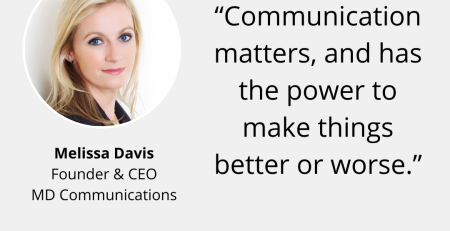As businesses of all sizes navigate through the challenging times caused by COVID-19, it’s important to ensure your crisis communications plan is up to scratch to deal with the impact the coronavirus may have on your company’s reputation.
Crisis communications means immediately working in a reactive mode, whereas most businesses usually function in a more proactive manner around the way they plan, engage and deliver their products or services, so this will take a bit of adjustment. However, being in this mode for now will serve you well in the long-term.
Staying ahead of the game
Preparation is key – leave it to chance and you could be left hesitating, speechless and come across as unprofessional.
Creating a media crisis response team is advisable in order to protect your reputation and lead you through this difficult time. Establish a team from different functions across your company, including HR, a member of the leadership team, communications, health and safety, and legal. This team should:
- Meet regularly and provide regular updates
- Be as transparent as possible. Explain what you know and what you don’t know, and be open about where this information came from
- Be the main point of information for the company
- Be succinct. Long in-depth messages will not be read or easily understood, so keep the language simple
- Be creative – think of ways you can turn a negative into a positive
Communicate early and often, even if you’re still trying to understand the extent of the problem, and be honest and open to maintain credibility. Approach the situation with empathy. You may occasionally get it wrong, but it is better to be up front and transparent than ignore the issue, which can lead to unnecessary media attention.
The same message needs to be heard and understood by your staff and the public. Providing regular updates as and when necessary is crucial to building trust with the media and your stakeholders.
Handling media enquiries
It’s wise to have a party line or holding statement in place for the media, just in case you find yourself in an untenable position around matters that involve staff working remotely, temporary office closures or cancelling large-scale events, for example.
We are seeing more and more of this happening and it’s becoming a hot topic for journalists to cover. Therefore, it’s important to have your statement in place in case you are contacted. This is where your crisis communications team can add value by drawing up these statements and feeding in their knowledge from the various sectors of the company.
Only today, we’ve seen announcements about airlines cancelling flights to many global destinations. This is a great example of how crisis communications teams are vital. If played out well, these announcements will go a long way towards reassuring current customers, as well as bringing new ones on board down the line.
The power of social media
Use social media to your advantage as it’s an instant way of communicating timely updates quickly and to a large number of key stakeholders.
The coronavirus situation changes on a daily basis, so your social media updates need to reflect this to reassure your audience that you are monitoring what’s happening and taking the most effective measures to keep staff, suppliers, delegates and stakeholders safe.
Remember to keep this in line with the same message you put out to the media. Consistency is key and there is no room for error, as discrepancies in messaging could spark negative interest with the media, leading to difficult questions.
Turning a negative into a positive
Deflect any negative media attention by highlighting the positive action your company is taking. For example, you may be cancelling flights, but you could instead be deploying your employees in their local communities to deliver supplies of food or pick up prescriptions for the elderly or most vulnerable. This is exactly the type of message that needs to be communicated on social media, which could eventually lead to a positive media story, placing you in a good light.
Summary
It’s a busy time for crisis communications teams, often involving round-the-clock cover for journalist requests, especially if you are a global operator working with different time zones. Being fully prepared and briefed will allow you to continue operating your business in the knowledge that your crisis response team is primed to react to any media issues to defend your company’s reputation.












